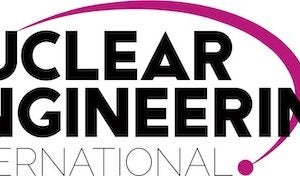The Russian government has already given its backing to a proposed Russian-Kazakh co-operation deal for the construction of a new nuclear power station. Under the draft agreement, Russia will help to build and equip a $2 billion plant with three VVER-640 reactors totalling 1900 MWe near Lake Balkhash, 400 km northeast of Alma-Ata. Construction is due to begin in 1999. The first unit is expected to come into operation in the year 2005, the second two years later and the third three years after that.
Kazakhstan will bear all the costs of financing the project, with some of the funds coming from money released under a 1995 intergovernmental agreement with the US to remove weapons materials. The government also intends to raise some of the money by setting up an international consortium. Victor Yazikov, president of KATEP (Kazakh State Corp for Nuclear Power and Industry) said that Kazakhstan has been holding talks with French and German concerns on providing equipment for the plant, particularly instrumentation and control systems.
Russia will train Kazakh nuclear personnel, supply nuclear fuel during the whole period of the plant’s operation, take back spent fuel for reprocessing, and, in compliance with Russian legislation, return the reprocessed fuel and waste to Kazakhstan. The draft deal also stipulates that Kazakh-stan will bear exclusive responsibility for the consequences of any nuclear incidents arising from the project, and forbids Kazakhstan to produce nuclear weapons from material and equipment supplied by Russia.
Last November, Kazakhstan signed several nuclear agreements with the US including one to assist in the management of spent fuel from the BN-350 plant at Aktau, formerly Shevchenko, which is used for desalination (up to 100 000 t/d) as well as power generation (design capacity of 250 MWe). The fuel will be stored under IAEA safeguards criteria. Other agreements are aimed at improving security of nuclear materials and reactor safety.
THE PRIVATISATION QUESTION
As Kazakhstan announces plans for a nuclear power programme, the government appears to be re-establishing a tight hold over the nuclear industry through what amounts to a reversal of privatisation moves. This has already led to the withdrawal of one Western company from its involvement in uranium exploitation. Worldwide Minerals (WWM) of Canada announced on 30 September that it would withdraw its efforts from Kazakhstan and pursue legal remedies arising out of “illegal expropriation of its Kazakhstan agreements”. These include an October 1996 agreement for management of the uranium mining and processing complex at Stepnogorsk operated by Tselinny Gorno-Khimicheskii Kombinat (TGK) with an option to acquire 90% of the equity by December 1998, and a February 1997 strategic alliance agreement to form a joint venture with Kazatomprom for redevelopment of various uranium mines in southern Kazakhstan. WWM operated through its Kazuran subsidiary which took over TGK in November 1996.
WWM had been heartened by the establishment of Kazatomprom, a joint stock company which was set up to control the uranium industry with a view to privatisation. Previously the uranium industry had been the province of KATEP, which was 51% state owned with the remaining ownership in the hands of its management and some unidentified foreign investors. However, KATEP’s 51% share was transferred to Kazatomprom as well as all KATEP’s physical assets including uranium mines and other facilities. KATEP remained responsible for uranium exports and for the development of future nuclear power stations as well as for waste management.
WWM had conducted its initial discussions and signed a preliminary agreement with KATEP but subsequently found itself dealing with Kazatomprom. Contrary to expectation, however, Kazatomprom was not further privatised but has been effectively renationalised and is now a state-owned entity. WWM received a further blow in June 1997 when it was refused an export licence for uranium for which it already had a contract with a US utility and then discovered that Kazakhstan had previously agreed to give a third party exclusive rights to export to the US. WWM then ceased its operations at TGK, having already invested some $23 million, directly and indirectly, and on 1 August Kazakhstan formally abrogated the agreements. The TGK Project has now been placed in bankruptcy by the Government and its management has been taken over by Kazatomprom while the government seeks local bank financing to restart operations.
Paul A Carroll, Chairman and Chief Executive Officer of WWM, said “the effect of the unilateral cancellation of our agreements is to reverse the privatisation programme for the uranium industry in that country. This flies in the face of everything that the government of Kazakhstan says that they are doing to attract foreign investment – and which was what attracted us to the country in the first place.” The government, which has launched a recovery programme for TGK, said that TGK produced just 44 tonnes of uranium in the form of yellowcake under WWM management. Output for yellowcake in the first half of 1997 fell 57% compared with the same period of 1996, that for electricity 20% and heat 40%. Overall losses during the period rose five-fold. WWM insists that it invested enough to cover current investment requirements. It said the plant owed $4.5 million when the contract began, and that the contract was dissolved when WWM was negotiating bank credit of $100 million for the plant.
Meanwhile, Kazatomprom is looking to a new joint venture formed with the Kara Balta mining complex in Kyrgyzstan to process up to 1000 t of its uranium in 1998, increasing later to 2000 t/year. Kazatomprom has 65% of the charter capital and Kara Balta 35%.
Related ArticlesKazakhstan ‘may build a nuclear plant in the next 10 years’






